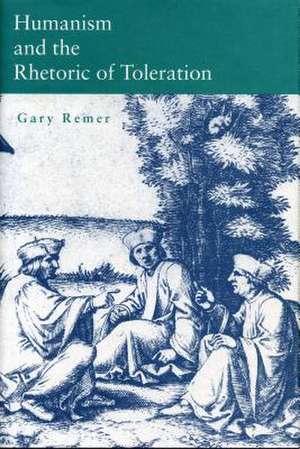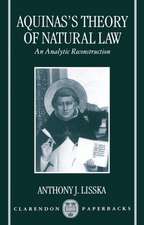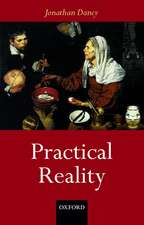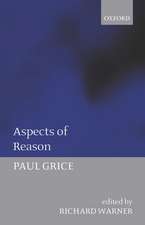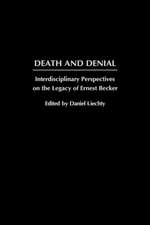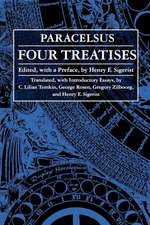Humanism and the Rhetoric of Toleration
Autor Gary Remeren Limba Engleză Paperback – 14 apr 1996
Remer, however, offers the surprising conclusion that humanist thinking on toleration was actually founded on the classical tradition of rhetoric. It was the rhetorician's commitment to decorum, the ability to argue both sides of an issue, and the search for an acceptable epistemological standard in probability and consensus that grounded humanist arguments for toleration. Remer also finds that the primary humanist model for a full-fledged theory of toleration was the Ciceronian rhetorical category of sermo (conversation).
The historical scope of this book is wide-ranging. Remer begins by focusing on the works of four humanists: Desiderius Erasmus, Jacobus Acontius, William Chillingworth, and Jean Bodin. Then he considers the challenge posed to the humanist defense of toleration by Thomas Hobbes and Pierre Bayle. Finally, he shows how humanist ideas have continued to influence arguments for toleration even after the passing of humanism from John Locke to contemporary American discussions of freedom of speech."
Preț: 248.96 lei
Nou
Puncte Express: 373
Preț estimativ în valută:
47.64€ • 49.84$ • 39.57£
47.64€ • 49.84$ • 39.57£
Carte tipărită la comandă
Livrare economică 02-16 aprilie
Preluare comenzi: 021 569.72.76
Specificații
ISBN-13: 9780271028118
ISBN-10: 0271028114
Pagini: 328
Dimensiuni: 152 x 229 x 21 mm
Greutate: 0.49 kg
Editura: Penn State University
Locul publicării:United States
ISBN-10: 0271028114
Pagini: 328
Dimensiuni: 152 x 229 x 21 mm
Greutate: 0.49 kg
Editura: Penn State University
Locul publicării:United States
Textul de pe ultima copertă
Religious toleration is much discussed these days. But where did the Western notion of toleration come from? Remer offers the surprising conclusion that humanist thinking on toleration was actually founded on the classical tradition of rhetoric. It was the rhetorician's commitment to decorum, the ability to argue both sides of an issue, and the search for an acceptable epistemological standard in probability and consensus that grounded humanist arguments for toleration. Remer also finds that the primary humanist model for full-fledged theory of toleration was the Ciceronian rhetorical category of sermo (conversation). The historical scope of this book is wide-ranging. Remer begins by focusing on the works of four humanists: Desiderius Erasmus, Jacobus Acontius, William Chillingworth, and Jean Bodin. Then he considers the challenges posed to the humanist defense of toleration by Thomas Hobbes and Pierre Bayle. Finally, he shows how humanist ideas have continued to influence arguments for toleration even after the passing of humanism - from John Locke to contemporary American discussions of freedom of speech.
